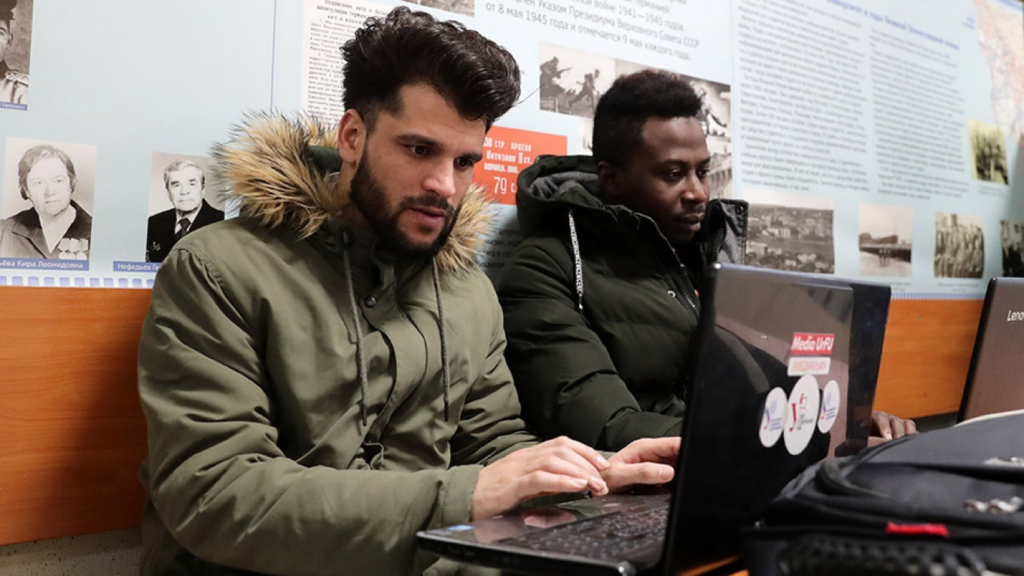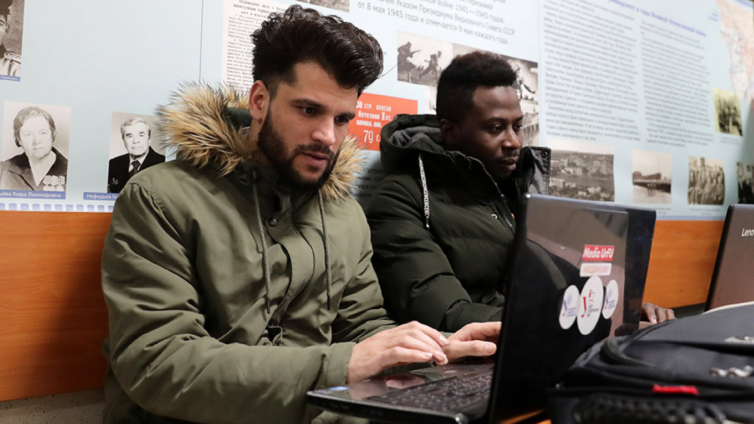In recent years, the Russian Federation has pursued the internationalization of its education sector intending to improve its global status and leverage education as a tool for a sustainable multipolar world. This initiative has not only improved educational quality, but it has also catalysed altering preconceptions connected with Russia on the international stage.
This is hardly surprising given the country's rich cultural and historical past, as well as scientific achievements, which place it as a global educational hub. As previously said, Russia's commitment to education is one of its key foreign policy solutions to a multipolar world in which each participating country gains mutual benefits without jeopardising its sovereignty.
According to a 2017 study by a team of Russian academics, education is a potent tool for promoting Russian realities, values, and culture among international students. This proactive engagement with the host society promotes a more nuanced perception of Russia, challenging old stereotypes that are spread by the media.
Values and Distinctions
The survey also provides insight into how international students view Russia's cultural identity. While 27.4% of respondents attributed Russia to the European family of peoples, nearly 59% saw it as a distinct civilization that connected Europe and Asia. This complex understanding adds to a more comprehensive picture of Russia by challenging monolithic perceptions.
What's interesting is that 72.6% of students who responded to the study acknowledged that Russian society had unique values. Still, more than half of them (54.8%) think these disparities are not that significant. According to this nuanced viewpoint, education in Russia is a bridge that enables international students to understand and negotiate local quirks, strengthening their bonds with the host community.

Stereotypes and Global Interest
The data (of 5, 668 searches) from January 5, 2020, to November 26, 2023, which represents the global public's search interest, indicates that people were more interested in stereotypes than in learning about Russian culture (19.54%) when they were trying to figure out how to study abroad and where to study specifically. Analyses show that a significant portion of people are interested in Russian education (24.80%) and Russian universities (26.12%).
There was a favourable relationship between stereotypes and Russian culture at the time. However, preconceptions and Russian education, as well as Russian universities, have a negative relationship. While prejudices may remain, they are actively contested and countered by the actual experiences of people involved in Russian education. For example, there are several self-reports on social media and in mainstream media from students who have firsthand experience with Russian culture at interpersonal and corporate levels. Unfriendly, humourless, and never-smile preconceptions were later proven false by their experiences. In their interactions with our analysts, Russians only believe that smiling happens on purpose and after a true relationship has been created. This does not apply when a hilarious scenario occurs in a public area, the students said.
The experiences of foreign students in Russia are helping to dispel outmoded misconceptions and shape a more accurate and nuanced global picture. As education emerges as a critical component of Russia's major geopolitical policies for establishing and maintaining multipolarity, it attracts talent and investment and develops cross-cultural understanding. These students' growing narratives add to a broader conversation beyond stereotypes, underlining Russia's distinct character, values, and key position in global education.
Exhibit 1: Countries where searches came from mostly

Source: Google Trends, 2023
Latest Stories
-
Saminu Abdul Rasheed smashes national record again with 9.84s sprint in Georgia
2 hours -
Blekusu Coastal project: We’re reclaiming our coastlines – Housing Minister
4 hours -
Pricey plantains push Ghana’s market sellers to diversify
4 hours -
Full list: NPP delegates approve 54 reform motions, reject proposals on youth age, election supervision
5 hours -
WAFCON 2024: Cynthia made it easy – Chantelle hails goalkeeper after penalty saves
5 hours -
Cyber Security Authority boss suspended over use of military bodyguard
5 hours -
WAFCON 2024: I want to make history – Grace Asantewaa dreams of lifting the trophy
5 hours -
Afenyo-Markin accuses NDC of rebranding and claiming credit for NPP projects
5 hours -
2024 WAFCON: Grace Asantewa shines as Black Queens reach semis
5 hours -
WAFCON 2024: Ghana beat Algeria 4-2 on penalties to book semi-final spot for the first time since 2016
5 hours -
NPP Delegates reject motion to shift polling station selection oversight to regional committees
5 hours -
2024 WAFCON: Black Queens set up semifinal clash with hosts Morocco
5 hours -
Dr. Amuasi champions healthy sustainable socio-ecological systems thinking in Lancet One Health Commission Report
6 hours -
Without unity, we’re just individuals with ambition – Afenyo-Markin
6 hours -
Rebecca Tweneboah Darko: Scattered thoughts; Scary times
6 hours

